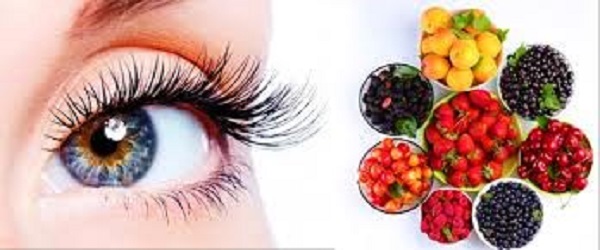
Of our five senses, vision is the most cherished. Eye health is a very important component of our overall health. Healthy eyes not only affect how you see but also how you feel about your environment and those around you.
It has been said, “The eyes are a window to the soul”. While I agree, I would also suggest “The eyes are a window to one’s overall health including heart health, brain health and happiness”.
Just like many other parts of one’s body, eye health is impacted by lifestyle, diet, and exercise. There are many known eye diseases and disorders that can often be managed by eye specialists, such as an optometrist or ophthalmologist.
Good nutrition plays a vital role in the prevention of many eye diseases.
Consumption of a variety of fruits and vegetables, which have high antioxidants levels, is important. Eye conditions which benefit from a smart diet and scientifically studied nutrients include:
- Age-related macular degeneration
- Glaucoma
- Cataracts
- Diabetic Retinopathy
- Dry Eyes
AGE-RELATED MACULAR DEGENERATION
Macular degeneration is a medical condition that results when the centre of the retina deteriorates. Over time, it leads to visual loss.
Much research suggests that a healthy diet rich in antioxidants, minerals, and vitamins are important in the prevention of macular degeneration.
Studies report that junk foods and processed foods are associated with developing age-related macular degeneration. Basically, macular degeneration results from inflammation and damage in the eyes. Other studies claim that a diet high in cholesterol and meats is associated with an increased risk for eye diseases.

Carotenoids are a class of red, yellow and orange-colored foods that act as natural antioxidants in the human body.
A popular carotenoid is beta-carotene. Beta-carotene is responsible for the orange colour seen in carrots and pumpkins that are known to help maintain healthy vision.
It is important to note that beta-carotene must first be converted to vitamin A by the body in order to benefit from its natural antioxidant potency. Vitamin A supplements should only be taken under the guidance of a physician, especially if pregnant or a smoker.
Lutein and Zeaxanthin are two common carotenoids associated with eye health. Numerous studies have shown benefit in preventing the progression of age-related macular degeneration when consumed through diet and when taken in supplement form.
Green leafy vegetables, such as kale and spinach are rich in lutein and zeaxanthin. If these are not regularly eaten in your diet, then a supplement should be considered.
Zinc is an abundant mineral found in the human retina. Its antioxidant properties are responsible for enzymatic reactions that are critical for retinal function. The eye has a high concentration of zinc when compared to other organs of the body.
In addition, some research claims that deficiency of zinc in the eye may cause poor night vision.
Foods high in zinc include red meat, poultry, beans, nuts, and seafood. Zinc can be consumed as part of a multivitamin or as a supplement.
Vitamin C (ascorbic acid) is also found throughout the retina and studies have shown that low concentrations of vitamin C in the blood increase one’s risk for macular degeneration and cataract formation. Suggested dose: 500-2,000 mg daily.
Bilberry is a phytonutrient that also contains flavonoids beneficial for vision and blood supply to the retina. Flavonoids are also naturally found in berries, green tea, chocolate, red wine, and citrus fruits. Bilberry can also be taken as a supplement.
Other supplements that may be beneficial include Ginkgo biloba, N-acetyl cysteine, and Melatonin.
GLAUCOMA
As we age, the optic nerve, which connects the eye to the brain can become damaged due to a “pressure” build up in the eye, this is known as glaucoma. Those with advanced glaucoma may first lose peripheral vision and if left untreated, can lead to blindness.
Antioxidants are helpful in glaucoma prevention and treatment.

Ginkgo biloba has been studied extensively for its flavonoid compounds. Multiple studies support that Ginkgo Biloba increases circulation to the optic nerve and helps reduce oxidative stress, improve ocular blood flow and prevent the progression of glaucoma.
Antioxidants
It has been shown that a diet high in antioxidants is important and beneficial for eye health. Oxidative stress is a major factor contributing to the development of eye diseases and aging, in general.
Multiple studies have demonstrated that antioxidants help prevent and minimize oxidative damage to cells and nerves of the eye. Vitamin C and Vitamin E are antioxidants which can be helpful.
Vitamin C plays an important role in helping to lower eye pressure, a symptom of glaucoma. Suggested dose: 500 – 2,000 mg per day.
Vitamin E has also been found to have beneficial effects only when consumed with appropriate amounts of other antioxidants. Therefore, it is important to consume a balanced diet with a variety of fruits and vegetables in order to ensure the intake of different vitamins and minerals for optimal eye health.
CATARACTS
A cataract is formed over time due to the lens of the eye becoming cloudy. If left untreated, it can lead to blindness. Scientists believe oxidation of the lens is the main reason this occurs.
Excessive sun exposure, tobacco use, diabetes, high blood pressure, and certain medications, like steroids, are risk factors for developing cataracts.
Antioxidants can help protect against the formation of cataracts. A diet high in fruits and vegetables that contains numerous anti-oxidants is beneficial. Many herbs, vitamins, and minerals in foods and supplements have antioxidant properties that help protect the eyes.
Lutein and zeaxanthin are two common carotenoids associated with optimal eye health preventing damage to the lens of the eye.
However, most research suggests that combining both lutein and zeaxanthin provides the most benefit. Leafy green vegetables and fruits are good sources of lutein and zeaxanthin. When not adequately consumed in one’s diet, a quality supplement should be taken.
Pine Bark Extract could prevent the formation of cataracts. Suggested dose: 50 to 250 mg once or twice per day.

Spirulina – Spirulina is considered a superfood by many. It is an easily digestible nutritional supplement, which belongs to a family of blue-green algae and can be taken in a pill or powder form.
Vitamin C– A potent antioxidant that protects against cellular damage. Suggested dose: 500 to 2,000 mg per day.
Multivitamins – Multivitamins contain a variety of nutrients, including vitamin E and vitamin C. A 2014 study in Nutrients showed those who took a multivitamin were 34% less likely to develop cataracts.
DIABETIC RETINOPATHY
Diabetes, when not controlled, can cause damage to the eye. Doctors call this damage, diabetic retinopathy. This complication, if untreated, can cause permanent vision loss.
Obviously, controlling type 2 diabetes or reversing it using diet and lifestyle changes is crucial to keep one’s eyes healthy.
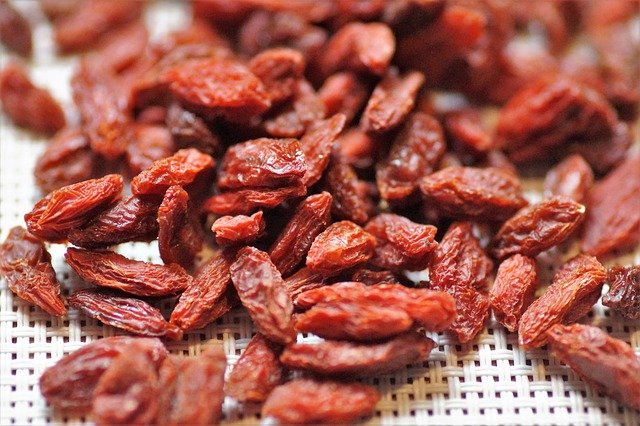
The active ingredient in Goji berries could protect the eyes from diabetes complications
A healthy diet rich in fruits and vegetables and regular exercise is also important in controlling diabetes and other common complications that so many with diabetes encounter.
DRY EYES
Dry eyes (Sicca syndrome) results from decreased tear production and is a common reason a person visits their eye doctor. Sometimes, it can be due to autoimmune conditions such as Sjogren’s syndrome or rheumatoid arthritis.
Those with diabetes are also at increased risk for dry eyes. Symptoms may include burning, itching and the sensation of something being in the eye.
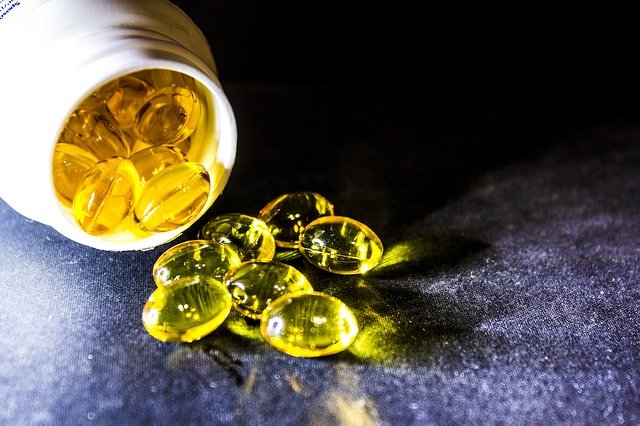
Omega-3 fish oil – Evidence has shown that consuming anti-inflammatory omega 3 fatty acids improve the symptoms of dry eye syndrome. Omega-3 fatty acids can be found in fish, chia seeds, or in supplement form, such as omega-3 capsules or omega-3 liquid fish oil.
Vitamin C appears to also be helpful in those with dry eyes. Suggested dose: 1,000 mg per day.
Vitamin B6 may be helpful for dry eyes in those who are vitamin B6 deficient
LIFESTYLE EFFECTS ON VISION
Lastly, smoking cigarettes causes many health problems. It accelerates the aging process and leads to various chronic illnesses that are frequently irreversible.
The body becomes highly contaminated with these toxins that further accelerates the development of vision disorders and/or vision loss. Smoking cessation is crucial to eye health.
Further, while moderate sunlight exposure has health benefits such as vitamin D production, too much sun can cause damage to the eyes. It is important to always remember to protect the eyes from excessive damage from the sun.
Wearing UV protected eyeglasses is advised when spending a lot of time in the sun.
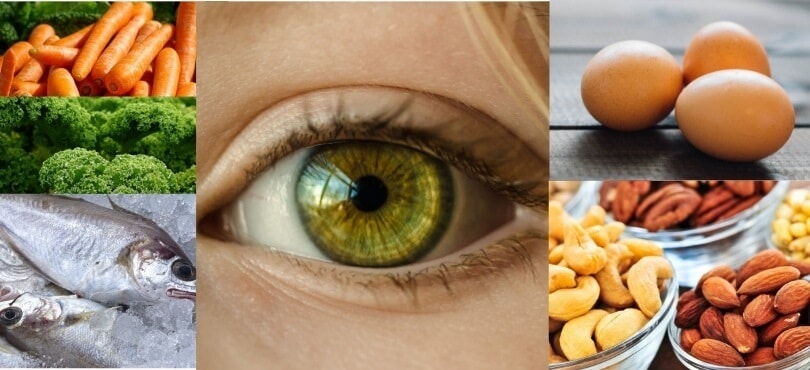


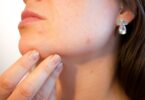



Leave a Comment